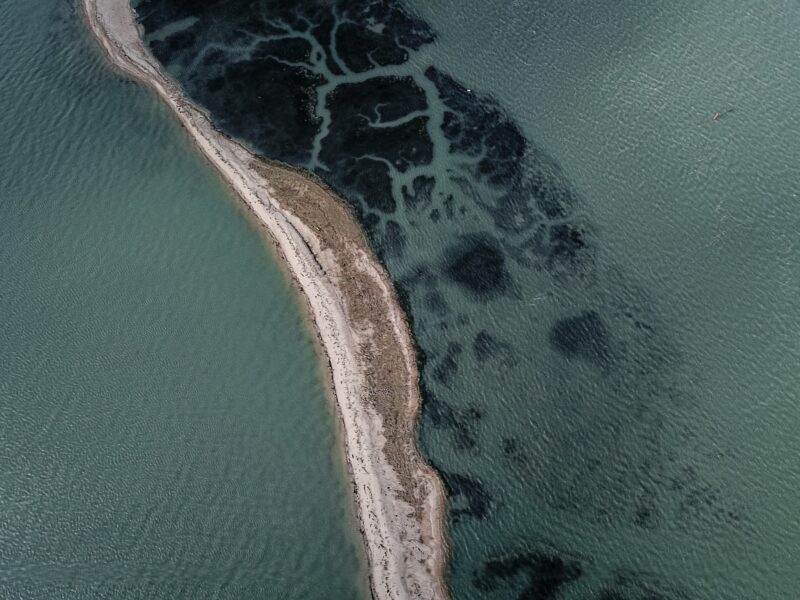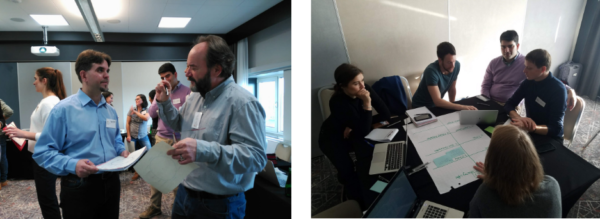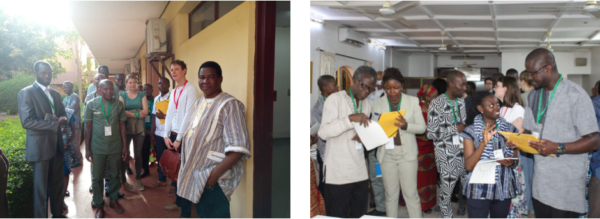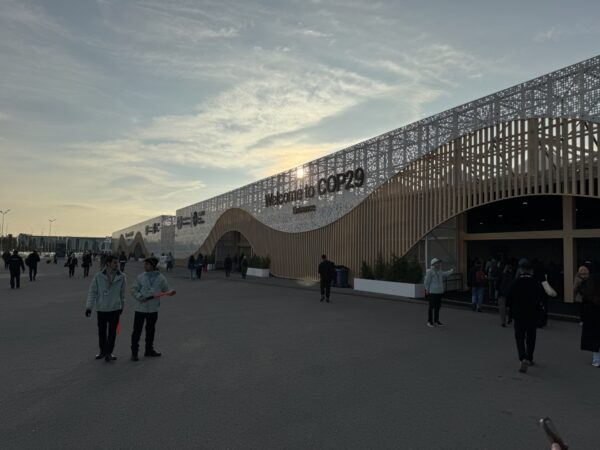Tell me what you need — how to make really useful climate tools
Kaylin Lee, Gina Maskell, Inga Menke, Quentin Lejeune
Implementing science-based climate policies requires communication and collaboration between various actors in the interdisciplinary climate field. The ISIpedia project is one of the growing number of efforts addressing this challenge by involving decision makers and practitioners in developing a tool that is meant to benefit them — a user-friendly information portal of climate change impacts.
Share

One barrier to implementing science-based climate policies is the lack of communication and collaboration between various actors in the interdisciplinary climate field. Too often, research on climate change impacts on human and natural systems is not conveyed in a way that is easily comprehensible or practical for decision makers.
Information about climate change impacts is inherently difficult to communicate due to uncertainties and complexity, and compounding this difficulty is a lack of a centralised and consistent channel for disseminating it. The gaps in communicating and disseminating climate information are recurring themes in the Intergovernmental Panel on Climate Change (IPCC) Assessment Reports, which calls for integration of climate knowledge across disciplines, scales and actors.
The ISIpedia project is one of the growing number of efforts addressing this challenge by involving decision makers and practitioners in developing a tool that is meant to benefit them – a process referred to as stakeholder engagement.
ISIpedia will be an online platform – a climate impact information portal, which will provide accessible, policy-relevant information about climate change impacts, based on the data and scientific knowledge generated within the impact modelling community, Inter-Sectoral Impact Model Intercomparison Project (ISIMIP). Users of ISIpedia will be able to generate sectoral, or thematic, and indicator-based assessment reports on current and future climate impacts on a country or global level based on their selection.
ISIpedia’s stakeholder engagement is carried out through various activities, including an online survey on the use of climate-impact information, workshops that bring together impact modellers and stakeholders, and facilitation of longer-term collaboration between researchers from different disciplines and researcher-practitioner dialogues.
Recently, we held two workshops in the two ISIpedia focus regions, Eastern Europe and West Africa, in order to develop indicators for measuring climate impact on natural and human systems. The first workshop in Krakow, Poland, gathered 15 stakeholders and 4 ISIMIP modellers. The second workshop in Ouagadougou, Burkina Faso, brought together 41 stakeholders and 4 ISIMIP modellers.
These stakeholders included IPCC or UNFCCC Focal Points, environment ministry representatives, researchers and employees from companies whose activities are impacted by climate disasters.
Both workshops provided a good learning opportunity for stakeholders and modellers. Stakeholders developed a better understanding of climate impacts, ISIMIP impact data and its potential, and reflected on how they could apply information provided by ISIpedia in their work. Modellers gained insight into information needed and valuable in the administrative and policy sphere and how they can strengthen climate models to benefit policy decision-makers.
Reaching a common understanding of key terms early on is one of the prerequisites for effective discussions. For example, stakeholders defined “near-term future” as “within the next 1-3 years” (private sector) or “within the next ten years” (national administration), whereas modellers defined it as 2030-2040.
This misunderstanding reaffirmed the need for a session where modellers and stakeholders clarify key terms collectively, allowing modellers to get a better picture of stakeholder needs and politically-relevant definitions and for stakeholders to have a first taste of the vocabulary and protocols of impact modelling. Additionally, the discussion contributed to understanding the need for a glossary on the ISIpedia portal.
Participants from both workshops developed a few new ideas for indicators within and across ISIMIP sectors. Some indicator development outcomes included separating the layers of existing indicators to include socio-economic components that are in stakeholders’ interest and exploring new themes, such as health and gender, that existing indicators do not address.
For example, some participants would like to see the existing energy sector indicator “energy supply” split into different types of renewable energy, such as solar, wind, etc. Furthermore, while clarifying the indicator “heating/cooling degree days,” they incorporated information on energy efficiency and costs to develop a new indicator “changes to heating/cooling costs.”
In Ouagadougou, the group work led to the development of entirely new cross-sectoral indicators that could help address some of the most pressing and relevant issues in West Africa. One group came up with an indicator that would show “population at risk of contracting malaria per month” by linking population and climatic conditions suitable for epidemics of the disease.
Another group had an idea of linking climate impacts and activities traditionally taken on by women in some regions, like collecting water or firewood or cultivating land, in order to explore how climate change influences gender roles in these regions.
As a next step, the ISIpedia team will develop a plan to integrate the newly developed indicators, making sure stakeholders’ inputs are reflected in the ISIpedia final product.
The beta version of ISIpedia will launch later this year at: www.isipedia.org. The launch will be followed by another round of workshops on feedback and training on the new portal.
Additional reading: ‘Key insights from ISIpedia stakeholder workshops’
Keep updated on our progress by subscribing to our newsletter.













